Posted on 7/26/2024
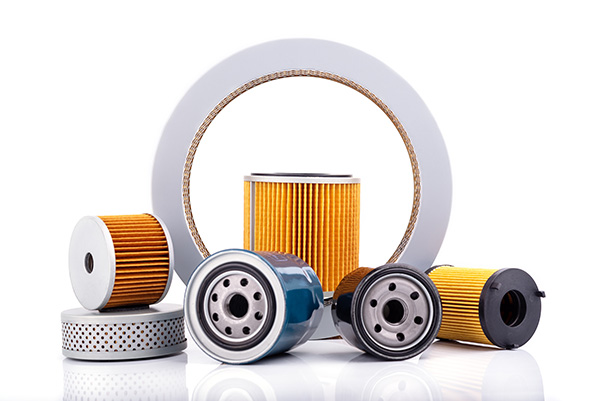
Filters play a crucial role in maintaining your car's health and efficiency. They ensure that your engine, cabin, and various systems remain clean, directly affecting performance and longevity. But with several types of filters in your car, do you know which ones are the most important? Let's discuss the key filters that you need to be aware of and why they matter. Engine Oil Filter Your car's engine oil filter is one of the most critical components. It cleans the oil as it circulates through the engine, trapping dirt, debris, and other contaminants that can cause damage. Regularly changing the engine oil filter ensures that your engine runs smoothly and lasts longer. Neglecting it can lead to poor performance, reduced fuel efficiency, and potentially severe engine damage. Intake Air Filter The air filter is another vital component, filtering the air that enters your engine. Clean air is essential for the combustion process, which is wh ... read more
Posted on 6/28/2024
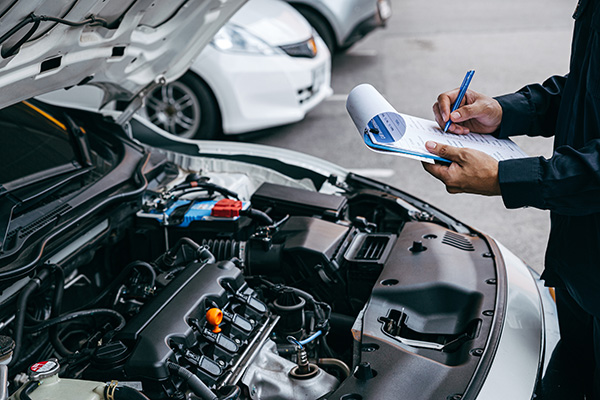
Have you ever noticed your car losing its pep over time, or maybe you're visiting the gas station more frequently than before? These are clear signs that your car might be in desperate need of a tune-up. But what exactly is a car tune-up, and how does it benefit your vehicle's performance and fuel efficiency? Let's look into the nuts and bolts of this essential maintenance task and discover why it's so crucial for keeping your car running smoothly and economically. The Car Tune-Up Service A car tune-up is like a wellness check for your vehicle, ensuring all critical systems are functioning at their best. It's a comprehensive service that typically involves inspecting and replacing various components to restore the car to its optimal operating condition. But why is this important? Over time, parts wear out, fluids degrade, and systems can become clogged or misaligned, leading to decreased performance and increased fuel consumption. Regular tune-ups ... read more
Posted on 5/28/2024
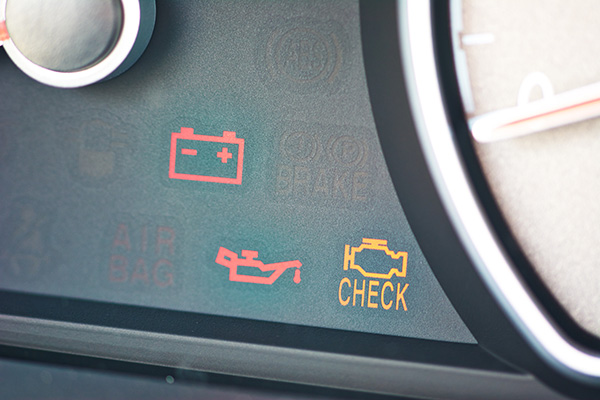
Ever been startled by the sudden appearance of a battery warning light on your dashboard? It's a common scenario that can leave drivers feeling puzzled and anxious. But what does this warning light signify? What Is Battery Warning Light For The battery warning light, often depicted as a symbol resembling a battery, is a vital indicator of your vehicle's electrical system health. When illuminated, it typically indicates an issue with the charging system, which includes components such as the alternator, battery, and associated wiring. Ignoring this warning can lead to potential breakdowns and inconvenience on the road. Causes of the Battery Warning Light Several factors can trigger the battery warning light to illuminate, ranging from minor issues to more severe electrical failures. Common causes include a faulty alternator, worn-out battery, loose or corroded battery terminals, or a malfunctioning voltage regulator. A broken or damaged driv ... read more
Posted on 4/27/2024
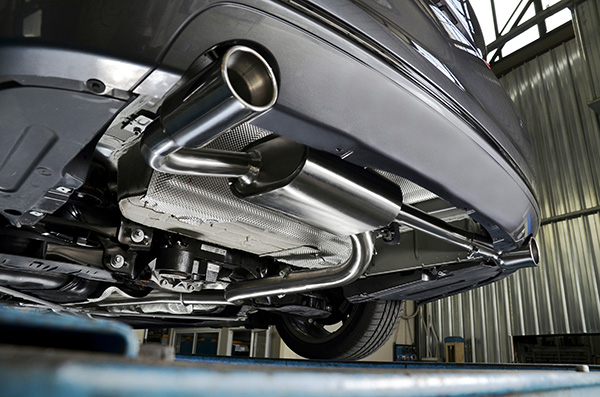
Your vehicle's exhaust system is crucial to its overall performance and environmental impact. From reducing engine noise to filtering harmful emissions, the exhaust system and muffler are integral components that require attention and maintenance. Bare in mind there are legal restrictions surrounding them, potential upgrades, and why understanding them is important for every car owner. The Benefits of Understanding Your Exhaust System Understanding your vehicle's exhaust system empowers you to make informed decisions about maintenance and upgrades. Regular inspections can help identify issues such as leaks, rust, or damaged components before they escalate into costly repairs. Knowledge of legal restrictions ensures compliance with regulations, avoiding fines and penalties. By investing in proper maintenance and selecting upgrades wisely, you can optimize your ... read more
Posted on 3/31/2024
.jpeg)
In the realm of reliable and versatile vehicles, Toyota stands out as a trusted brand, offering a range of models to suit various needs and preferences. Two of its most popular offerings, the Toyota Corolla and Camry, have garnered widespread acclaim for their practicality, efficiency, and value. What sets these two vehicles apart? Size - Compact vs. Midsize Sedan One of the most apparent distinctions between the Toyota Corolla and Camry is their size. The Corolla is classified as a compact sedan, making it an ideal choice for individuals or small families seeking fuel efficiency and easy maneuverability in urban environments. The Camry is a midsize sedan that offers more interior space and a larger footprint for those who prioritize comfort and versatility. Whether you prefer the nimble handling of a compact sedan or the spaciousness of a midsize sedan, Toyota has you covered with the Corolla and Camry, respectively. Performance and Powertrain Option ... read more
Posted on 2/28/2024
%20(1).jpeg)
Driving in bustling cities like Dallas and Fort Worth can be both exhilarating and challenging. Navigating through traffic, dealing with unpredictable weather conditions, and encountering various road hazards require a combination of skill, caution, and awareness. Navigating Dallas & Fort Worth's Unique Roadways Dallas and Fort Worth boast an extensive network of highways, freeways, and local streets, offering countless routes to reach your destination. Understanding the layout of major thoroughfares, such as Interstates 35, 45, and 635, as well as the President George Bush Turnpike and Dallas North Tollway, can help you plan your routes more efficiently and avoid congestion-prone areas during peak traffic hours. Weathering the Storm: Preparing for Texas Weather Conditions Texas is known for its diverse and sometimes unpredic ... read more
Posted on 1/30/2024

Fluid runs through a few different systems in your car. From the engine to the brakes, all of them have a specific lubricant or fluid that helps them perform efficiently. Knowing how to check the levels and replace these important fluids, might seem complex, but don't worry - here's everything you need to know: 1. Brake FluidBrake fluid is crucial for your safety. It transfers the force from your brake pedal to the brake rotors. To check it, locate the brake fluid reservoir under the hood. The fluid should be clear or slightly yellowish and reach the "Full" line. If it's below the "Low" mark or looks cloudy or dark, it's time to top it off or replace it. Remember, brake fluid absorbs moisture over time, which can affect braking performance ... read more
Posted on 12/21/2023
.jpeg)
Have you ever stood beside a vehicle, enamored by its sleek design, only to have your mind boggled by the jargon thrown around about its engine? "It's a V8!" one person exclaims. "No, but have you considered the turbocharged four-cylinder?" another counter. If this sounds familiar and slightly intimidating, fret not. Today, we're diving under the hood to unravel the mystique of vehicle engine variants and sizes in a way that won't make your head spin. Understanding Engine Types Engines come in many shapes and sizes, each with its own set of characteristics that can impact performance, fuel efficiency, and even the sound it makes when revving up. To keep it simple, let's look at some common types: Inline Engines Imagine your childhood choo-choo train; inline engines are akin to this linear configuration with cylinders arranged ... read more
Posted on 11/29/2023
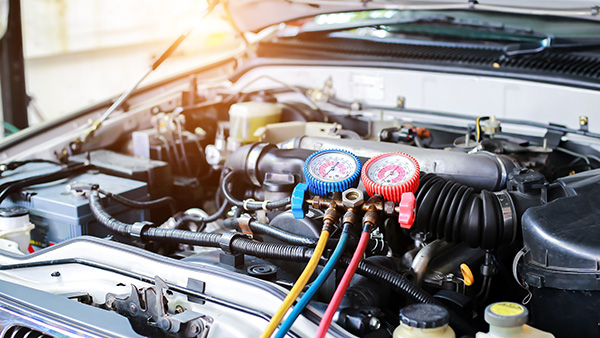
Your vehicle's air conditioning becomes more than a luxury – it's a lifeline in the sweltering heat and chilly days. Yet, what happens when that comfort function transforms into an unresponsive, malfunctioning headache? Your car might be sending signals that its A/C system needs a little care. Unusual Sounds Under the Hood Any unusual sounds emanating from the A/C system are its way of signaling distress. If you notice clanking, squealing, or grinding noises when you turn on the A/C, it's time to pay attention. They could indicate a failing A/C compressor, loose components, or issues within the belt system. Don't let your car's distress calls go unheard – a harmonious A/C system is key to a comfortable ride. Inconsistency in Airflow If your A/C system is playing a game of hot and cold, it might be having probl ... read more
Posted on 10/30/2023
%20copy.jpg)
While the thought of car repairs might evoke images of complex machinery and hours spent in the garage, some issues can be swiftly resolved with a touch of DIY magic and a dash of determination. Join us as we unveil five simple yet rewarding car repairs that we hand-picked and tested - the results show that they can all be done in one afternoon, or in other words, a fun, simple DIY project! Changing the Air Filter Dust and debris can clog your car's air filter, hampering its efficiency and potentially impacting your engine's performance. By locating the air filter box, removing the old filter, and inserting a new one, you can restore optimal airflow and improve your car's fuel economy within a matter of minutes. Replacing the Windshield Wipers A streaky windshield can impede your visibility and compromise your safety, especially during inclement weather. Bid adieu to worn-out wiper blades by lifting the blades, removing the old ones, an ... read more